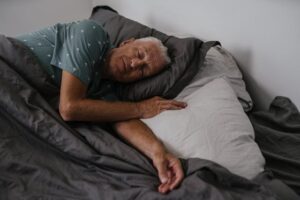As people age, their risk for certain health conditions increases, and one of these conditions is shingles. Shingles, also known as herpes zoster, is a painful rash caused by the reactivation of the varicella-zoster virus, the same virus that causes chickenpox. For seniors, the risk of developing shingles is particularly high, and the potential complications can be severe. Therefore, getting the shingles vaccine is highly recommended for older adults. Here are some compelling reasons why seniors should consider getting vaccinated against shingles.
1. High Risk of Shingles in Older Adults
Shingles can affect anyone who has had chickenpox, but the risk increases with age. Approximately one in three people will develop shingles in their lifetime, and the likelihood of occurrence rises significantly after the age of 50. This increased risk is due to the natural weakening of the immune system as we age. For seniors, especially those aged 60 and older, the chances of developing shingles are much higher, making vaccination a critical preventive measure.
2. Severe Symptoms and Complications
Shingles is not just a simple rash; it can cause severe pain and discomfort. The condition typically begins with tingling or burning sensations on one side of the body, followed by the development of a painful rash. The pain, which can be intense, may last for weeks or even months. In some cases, seniors may experience complications such as postherpetic neuralgia (PHN), a condition where the pain from shingles persists long after the rash has healed. PHN can be debilitating and significantly impact a senior’s quality of life.
Moreover, shingles can lead to other serious complications, including vision loss if the rash occurs near the eyes, hearing problems, and neurological issues. Given the severity of these potential outcomes, the shingles vaccine is an important preventive tool.
3. The Shingles Vaccine is Effective
The shingles vaccine, known as Shingrix, is highly effective at preventing the condition. Shingrix is more than 90% effective at preventing shingles and PHN in adults aged 50 and older. This level of effectiveness is significant and offers strong protection against the virus. The vaccine is administered in two doses, with the second dose given two to six months after the first. It is recommended even for those who have had shingles before, as it can help prevent future outbreaks.
Before Shingrix, there was an older vaccine called Zostavax, which is less commonly used today because it is not as effective, particularly for older adults. Seniors who received Zostavax in the past should still consider getting Shingrix for better protection.
4. Preventing the Spread to Others
While shingles itself is not contagious, the virus that causes it, varicella-zoster, can be spread to others, particularly those who have never had chickenpox or the chickenpox vaccine. In these individuals, contact with the shingles rash can result in chickenpox. By getting vaccinated, seniors not only protect themselves but also reduce the risk of spreading the virus to others, including family members and caregivers who might be vulnerable.
5. Vaccination is Safe and Well-Tolerated
Shingrix is a safe vaccine, with most side effects being mild and temporary. Common side effects include soreness at the injection site, muscle pain, fatigue, and mild fever. These side effects typically resolve within a few days. Serious side effects are rare, and the benefits of vaccination far outweigh the risks, especially given the potential severity of shingles.
6. Enhancing Quality of Life
For seniors, maintaining a high quality of life during retirement is important. Shingles and its complications can lead to significant pain, discomfort, and long-term health issues that can interfere with daily activities and enjoyment of life. By getting the shingles vaccine, seniors can reduce their risk of developing this painful condition and maintain a better quality of life.
Conclusion
In summary, seniors should strongly consider getting the shingles vaccine due to the increased risk of developing shingles and its potential complications as they age. The vaccine is highly effective, safe, and can prevent not only the painful rash but also long-term issues like postherpetic neuralgia. By getting vaccinated, seniors can protect themselves, help prevent the spread of the virus to others, and enjoy a healthier, more comfortable retirement.








